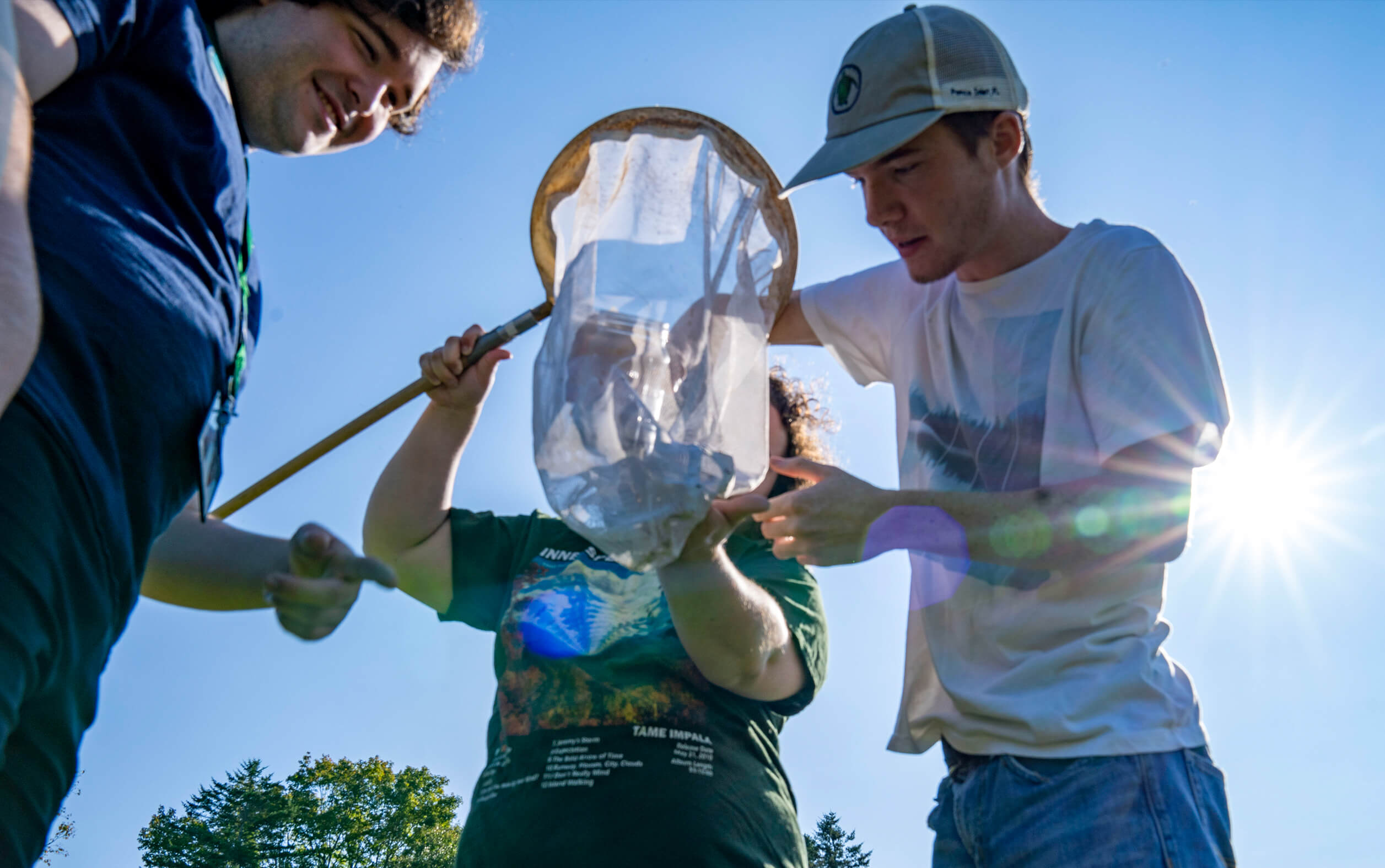Program Details
Explore biology hands-on in coastal Maine, with small classes, fieldwork, and career-focused opportunities.

Program Objective:
Learning Outcomes:
The process of scientific inquiry
Acquisition of discipline specific knowledge
Development of written and verbal communication skills
Acquisition of quantitative literacy
Concentrations
Pre-Professional (Health Professions)
12-15 Credits
This concentration is designed for students who wish to pursue careers in medicine, veterinary medicine, dentistry, optometry, pharmacy, or other professions requiring a rigorous background in the life and physical sciences. Students will be prepared to successfully complete entrance exams required by professional schools.
Fisheries Biology
12-15 Credits
The fisheries biology concentration offers students a hands-on education in fisheries. During their first-year seminar, students begin working on Atlantic salmon conservation projects alongside state and federal agencies and locals non-profit organizations. Projects include stream assessment, stream connectivity and other habitat restoration. Field-based work, including internships and research projects, continues throughout the course of the program, preparing students for a number of job options in the fisheries area.
Wildlife Biology
12-15 Credits
Through in-class presentations by guest speakers, such as the local game wardens in Fish and Wildlife Management, or out of class opportunities, such as tagging bears during hibernation, we strive to link you with experiences and professionals to further your career goals.
About the Program
Biology complements the other liberal arts programs as a context for human endeavors.
Biology provides the basis of knowledge in the areas of medicine, agriculture, biotechnology, and ecology. Studies of nature have long been the inspiration for works of art, literature, and music. At the same time, rapid advancements in biotechnology affect nearly every facet of our lives from the foods we eat and the drugs we take, to the fibers that are used to make our clothes.
Students will study biological systems at the level of the cell, the organism and the ecosystem. Courses in mathematics, physics, and chemistry will enhance students’ understanding of the physical laws that govern the activities of living organisms. All coursework is enhanced by extensive study in the laboratory and in the field with emphasis on hypothesis formulation and testing, and experimental design.
All students complete 58–59 credits of core requirements. In their final year of study they’ll develop a Senior Thesis comprised of an in-depth study of an area of particular interest. They may instead elect to take a Senior Seminar exploring advanced topics in biology based on a student’s previous training.
